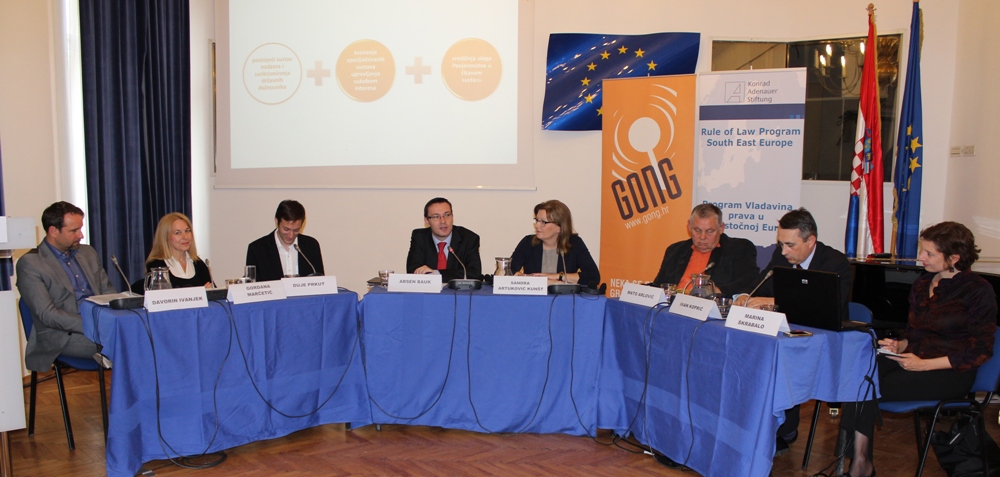A conflict of interest can happen not only at the level of government and ministries but low-ranking civil servants, too, can find themselves in such situations, which is why it is necessary to create a specific system for dealing with conflicts of interest, the GONG nongovernmental organisation said while presenting a proposal for amending the existing institutional and legislative framework on this topic in Zagreb on Tuesday.
Conflict of interest is counterproductive and ethically unacceptable for any society, there are criteria and laws to counter such situations, otherwise it becomes harmful for a democracy, said Thorsten Geissler, head of the rule of law programme for Southeast Europe of the Konrad Adenauer Foundation.
Geissler called for systematic efforts to focus on all office-holders so that are controlled and develop self-control. He warned against clientelism in the utilities sector and in public procurement.
The GONG analysis and recommendations, outlined by Duje Prkut, start from issues such as insufficient understanding of conflict of interest, a lack of information on it, and noncompliance with ethical codes.
The purpose of the new legislation is to cover all office-holders and make citizens trust the authorities more as well as to remove deficiencies in the current conflict of interest legislation, Prkut said.
